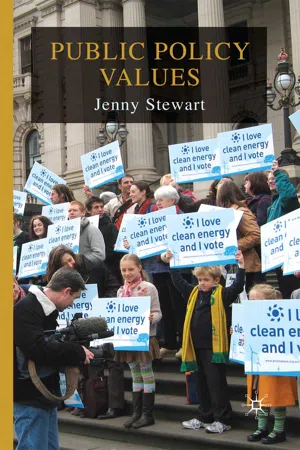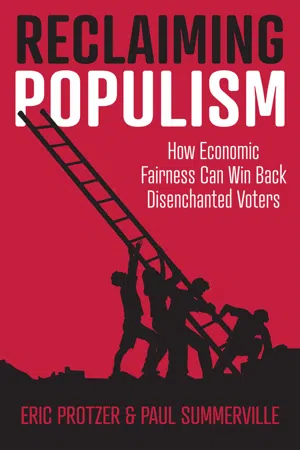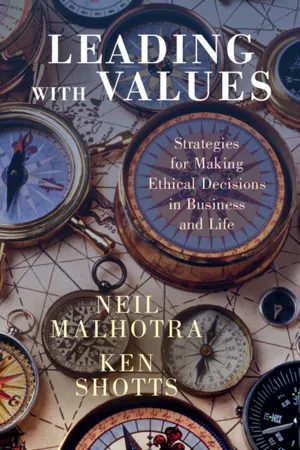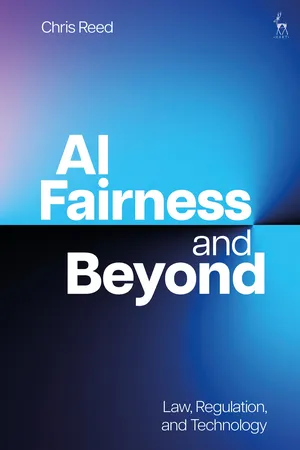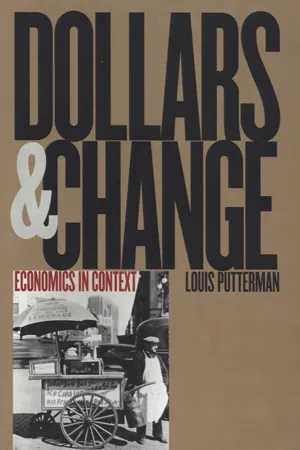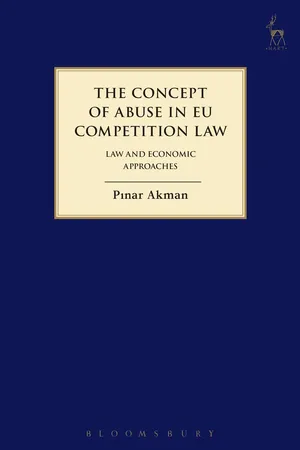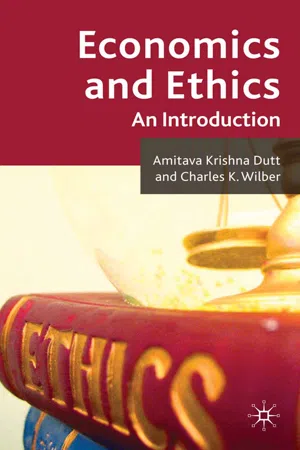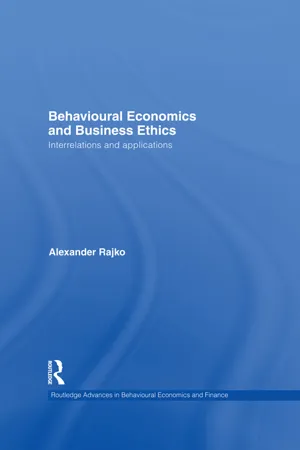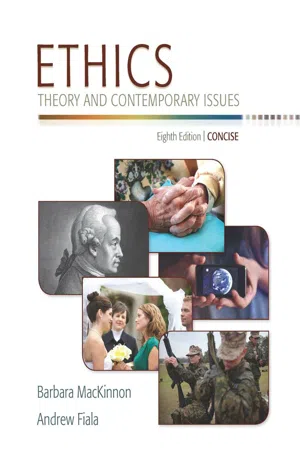Economics
Fairness
Fairness in economics refers to the equitable distribution of resources, opportunities, and outcomes. It involves ensuring that individuals are treated justly and that there is equality in economic transactions and policies. Fairness is a fundamental principle in economic theory and policy-making, aiming to minimize disparities and promote social welfare.
Written by Perlego with AI-assistance
Related key terms
1 of 5
9 Key excerpts on "Fairness"
- eBook - PDF
- J. Stewart(Author)
- 2009(Publication Date)
- Palgrave Macmillan(Publisher)
We might argue that Fairness involves the acknowledgment, preservation or even promotion of certain rights and that unFairness means disregarding these rights. Alternatively, we might rest our conception of Fairness on the processes that are used to produce outcomes. If the process is fair, the outcome is fair. Or we might rely on an assessment of the outcomes themselves, using criteria such as the extent to which inequalities are rectified. Economic theory has little to say about Fairness per se. The criterion for distributive efficiency – Pareto optimality – favours any distribution of resources where no one can be made better off without someone else being made worse off. In practice, policy analysts rarely use Pareto opti- mality as a basis for deciding whether a particular outcome is fair or not. Rather, they employ rough and ready versions of cost–benefit analysis to determine whether or not there is a net gain. If the benefits outweigh the costs, the redistributive aspects are overlooked. It is enough that the winners could compensate the losers, rather than that they should do so. More generally, deciding whether or not the outcome of a particular Implementing Fairness 49 policy is fair or not lies in the realm of value judgements, and for econo- mists, values are considered to be exogenously given. The terms Fairness and equity are often used interchangeably. But from a policy values perspective, they serve different purposes. This is because, as I argued in Chapter 1, the values perspective brings out, from both a political and a policy point of view, the dynamic tension between policy intentions and policy outcomes. I shall reserve the term ‘equity’ for judgements about the final distributions that policy processes produce, whereas Fairness, if we make full use of the English- language sense of the word, is a far more subjective concept. - eBook - ePub
Reclaiming Populism
How Economic Fairness Can Win Back Disenchanted Voters
- Eric Protzer, Paul Summerville(Authors)
- 2021(Publication Date)
- Polity(Publisher)
This chapter will first briefly review leading philosophical theories of economic justice. It will then present an alternative theory of economic Fairness that citizens across the developed world largely subscribe to in practice. It will show that this standard has been promoted through biological and cultural evolution, and is now highly valued by citizens of contemporary liberal democracies. Finally, it will explore a key implication of the dynamic, evolutionary nature of Fairness: it is a moving target, and must be effectively managed as society evolves to avoid disaster. Armed with this understanding, subsequent chapters will be positioned to empirically connect economic unFairness to populism and analyze how policymakers can best rectify this problem.Distributive Justice and Economic Fairness
A variety of contemporary philosophical theories, which fall under the umbrella of “distributive justice,” try to explain how economic opportunities and outcomes should be best distributed. While the scope of this book permits only a very short overview of the main ideas in distributive justice, such a review is essential to understand the contemporary debate and assess the idea of economic Fairness.It is worth noting that economists often claim to be agnostic about distributive justice. Milton Friedman, one of the most influential modern economists, argued in a 1953 paper that economics should be purely “positive” and not “normative.” That is, economists ought to work out the functional rules of the economy, much like a physicist might ascertain the laws of nature that govern electricity or thermodynamics. But he contended that economists should ignore moral questions of what should be done with the economy, and instead leave the matter to policymakers.Despite the immense impact of Friedman’s argument, in practice economics is largely framed by two schools of philosophical thought: utilitarianism and radical equality. The utilitarian view holds that society ought to be organized to maximize the net pleasure, happiness, and fulfillment of its citizens. In economics, utilitarianism assumes some “utility function” describing how a consumer’s happiness – or, in the language of economists, “utility” – depends on certain material inputs, subject to certain constraints. The economist then solves a system of equations to determine how to maximize society’s utility. A consequence of this approach is that economists often focus on growing a society’s “economic pie” (often expressed as its Gross Domestic Product – GDP), in order to maximize aggregate welfare. - eBook - PDF
Leading With Values
Strategies for Making Ethical Decisions in Business and Life
- Neil Malhotra, Ken Shotts(Authors)
- 2022(Publication Date)
- Cambridge University Press(Publisher)
In add- ition to increasing overall human happiness, Fairness requires that we think about the distribution of happiness among people and the proced- ures we use that determine who gets what. 126 Recall from Chapter 2 that Fairness is one of the core moral intuitions of human beings. But when people use the word “Fairness,” they often mean very different things. The moral psychologist Jonathan Haidt offers a useful summary for how people think about Fairness. Some people think about Fairness as equality of outcomes. Others think about Fairness in terms of equality of opportunity, or procedural Fairness. 1 Does everyone have the same opportunity given their talents and motivation, even if people’s outcomes end up being highly unequal? As we will discuss later, this tension between equality of outcomes and equality of opportunity is at the heart of many debates around Fairness in organizations, including both for-profit businesses as well as nonprofits. Some people believe that equality of opportunity is an empty promise unless it is accompanied by other policies that help level the playing field and reduce inequality in outcomes. Others believe that even in the presence of procedural Fairness major inequalities are an inherent aspect of modern market-based economies. People also think about Fairness in a third way – Fairness as proportion- ality. In other words, do people get what they deserve? People who subscribe to this view of Fairness believe that hard workers should be rewarded and slackers should be punished. Proportionality is central to the debate over a thorny word: equity. If you look up “equity” in the Merriam-Webster dictionary, you get a very unhelpful definition: “fair- ness or justice in the way people are treated.” In other words, a tautology. Some people think it is equitable to be proportional and that people should be rewarded and punished based on their actions. Others think equity requires intervening to reduce disparities in people’s outcomes. - eBook - PDF
AI Fairness and Beyond
Law, Regulation, and Technology
- Chris Reed(Author)
- 2024(Publication Date)
- Hart Publishing(Publisher)
174 ibid, 184. 175 ibid, 181: Prior work in economics has sought to formally characterize conditions of equality of opportu- nity to allow for its precise measurement in practical domains. At a high level, in these models an individual’s outcome/position is assumed to be affected by two main factors: his/her circum- stance c and effort e. Circumstance c is meant to capture all factors that are deemed irrelevant, or for which the individual should not be held morally accountable; for instance c could specify the socio-economic status he/she is born into. Effort e captures all accountability factors – those that can morally justify inequality. (Prior work in economics refers to e as effort for the sake of concreteness, but e summarizes all factors for which the individual can be held morally account- able; the term “effort” should not be interpreted in its ordinary sense here.) For any circumstance c and any effort level e, a policy ϕ induces a distribution of utility among people of circumstance c and effort e. Formally, an EOP policy will ensure that an individual’s final utility will be, to the extent possible, only a function of their effort and not their circumstances. Economics of Fairness 51 Analysis of AI Fairness techniques via economic modelling identifies a number of criticisms of those techniques. Kasy and Abebe write: 176 [W]e argue that these leading notions of Fairness, such as predictive parity or balance, suffer from the following three limitations. (1) They legitimize and perpetuate inequalities justified by ‘merit’ both within and between groups. The focus on ‘merit’ – a measure promoting the decision-maker’s objective – reinforces, rather than questions, the legitimacy of the status quo. (2) They are narrowly-bracketed. Fairness only requires equal treatment within the context of the algorithm at hand, and does not consider the impact of the algo- rithm on inequality in the wider population. - eBook - PDF
- H. Clark Johnson(Author)
- 2001(Publication Date)
- Yale University Press(Publisher)
The economic growth of the 1990$ has meant that work is easier for her to find, but market rents on apartments have risen sharply, too. She is on the waiting list to receive a subsidized housing voucher from the govern-ment, but it is reported that available units in the city are few and far between. Are the differences of fortune that separate John and Mary fair? Might they have been avoided? [ E C O N O M I C S AND J U S T I C E ] l8y How an economy is organized and the related policies adopted by gov-ernments can have far-reaching effects, not only on the overall level of productivity and prosperity of a nation, but also on how such prosperity as there is will be distributed among its people. How wealth, income, and economic well-being more generally are distributed, and the degree to which these patterns of distribution satisfy basic conceptions of Fairness or justice, will be the topics of this chapter. Do market processes, left to themselves, deliver fair outcomes? Can economic policy pursue prosper-ity, efficiency, and equity at the same time, or are there trade-offs between these goals? These are among the core questions to be considered here. ECONOMICS AND ETHICAL QUESTIONS: THE EARLY HISTORY Given the intimate relationship between economic variables and issues of distributive justice, Fairness in business dealings, and so on, one might ex-pect economists to devote a substantial amount of their attention to ethi-cal problems. Partly owing to the way in which different academic fields divide these questions among themselves, however, ethical issues actually occupy a very small part of the usual economics curriculum or of econo-mists' research agendas. How this came to be is an interesting story that goes somewhat beyond the outline of the history of economics sketched in Chapter 2. In the eighteenth and nineteenth centuries, writers on political econ-omy took a strong interest in issues of welfare and its distribution. - eBook - PDF
The Concept of Abuse in EU Competition Law
Law and Economic Approaches
- Pinar Akman(Author)
- 2012(Publication Date)
- Hart Publishing(Publisher)
The central insight that gave rise to modern economics is that the common good is well served by the free actions of self-interested agents in a market. 48 Almost all economic models assume that all people exclusively pursue their mate-rial self-interest and do not care about social goals per se. 49 Therefore a finding 46 United Brands (n 17) [253]. 47 O’Donoghue and Padilla (n 22) 604. 48 D Kahneman, JL Knetsch and R Thaler, ‘Fairness and the Assumptions of Economics’ (1986) 59 (October) Journal of Business S285, S286. 49 M Rabin, ‘Incorporating Fairness into Game Theory and Economics’ (1993) 83(5) The American Economic Review 1281, 1281; E Fehr and KM Schmidt, ‘A Theory of Fairness, Competition and Cooperation’ (1999) 114(3) The Quarterly Journal of Economics 817, 817. 198 ‘Fairness’ VERSUS ‘WELFARE’: ‘UNFAIR PRICING’ that people are not totally self-interested could challenge the deep-rooted assump-tions and theories of economics. Indeed, in behavioural economics, ‘Fairness’ is usually used as an explanation of behaviour that cannot be explained by the assumption of ‘rationality’ or ‘self-interest’. In other words, certain behaviour that seems contrary to economists’ expectations of rational self-maximising human behaviour is deemed to occur out of ‘Fairness’ concerns. The implication of this finding is that people would take into account ‘Fairness’ considerations when entering transactions and as a result, an undertaking might not be able to set the price as traditionally envisaged by economics, but have to take into account the possibility that an ‘unfair price’ could stop the customer from making a pur-chase. In the extreme, this would imply that there is no need for a competition law prohibition of ‘unfair’ prices since the potential reaction of customers should stop the undertaking from setting such prices. This finding, if accepted, would there-fore be relevant for the prohibition of ‘unfair pricing’ in Article 102. - eBook - PDF
Economics and Ethics
An Introduction
- A. Dutt, C. Wilber(Authors)
- 2010(Publication Date)
- Palgrave Macmillan(Publisher)
Sellers Fairness, Distribution, and Equality 187 may be winners not because they are better in some sense, but only because for some reason they had more buyers initially. Alternative approaches to economics focus on different determinants of income distribution. For instance: a Marxian approach highlights fac- tors such as the relative bargaining power of workers and capitalists and the role of the state in mediating between them; a type of Keynesian approach emphasizes the role of animal spirits and business psychology in increasing aggregate demand, increasing the average price level and squeezing the real wage; a post-Keynesian one emphasizes the degree of competition or monopoly power in the economy and the strength of labor unions; an institutional one focuses on the role of institutions in affecting the power relations between different groups in society and their ability to shift the distribution of income in their favor by affect- ing prices and government policy or both; and a feminist one stresses the distribution of income, functionings, and capabilities between males and females, and on the nature of the family and its interactions with the outside world. 6 These theories not only examine what determines distribution, but also examine how the factors affecting distribution change over time. These theories stress external environmental factors while arguably neglecting issues such as choice and effort, but unlike the micro approach which does not adequately deal with these exter- nal environmental factors, they provide a way of analyzing the roles of different macro-environmental factors and understanding the effects of public policy on distribution. 10.3 Why equality? It is standard practice in the discussion of ethics to distinguish between intrinsic and instrumental reasons for taking the view that something is good. - eBook - ePub
Behavioural Economics and Business Ethics
Interrelations and Applications
- Philip Alexander Rajko(Author)
- 2013(Publication Date)
- Routledge(Publisher)
After having discussed how outcomes are evaluated on the basis of behavioural evidence, I can now proceed with the procedural aspects of decision making. This stresses the relevance of intentions, when humans mutually evaluate their decisions, whereas traditional economics and even welfare economics has only assessed actions in terms of their consequences. First, an overview on procedural Fairness criteria is given. Then reciprocity is discussed as the central behavioural mechanism for the design of fair procedures.5.3.1 Fairness criteria and allocation proceduresEven though procedural Fairness is shaping human decisions as much as distributive justice, it has long been disregarded. For Aristotle procedural justice was fully covered by a state’s laws.123 Accordingly, early Greek philosophy did not realise the normative dimension of procedural Fairness and this mistake was later repeated in economic theory as well. Along these lines, behavioural economics gives a comprehensive criticism of neglected procedural aspects.124 However, the first systematic investigations of procedural Fairness can be found in the psychology literature.125 It goes back to the work of Knaster.126 The basic idea of procedural Fairness can be captured as: “if a number of persons engage in a series of fair bets, the distribution of cash after the last bet is fair, or at least not unfair, whatever this distribution is.”127 This definition is based on an implicit notion of social contracts. However, in criticism against Rawls, Nozick has even stressed the importance of procedural aspects of justice contrasted with distributive aspects.128 One can say his whole theory is entirely procedural, as it evaluates the distributive justice solely on the path leading to it.129 Now, the distinction between procedural and distributive justice has also been introduced to business ethics.130 In the framework of social contracts, procedural Fairness is explicitly formulated.131 Similarly, economics has only recently realised the explanatory potential of procedural Fairness and its impacts on economic behaviour.132 The first theoretic economic account of procedural justice based on game theory is very recent.133 From the economic perspective the defining feature is that: “people have non-consequential preferences in which they treat the same monetary outcome differently, depending on the process that leads up to it.”134 - eBook - PDF
Ethics
Theory and Contemporary Issues, Concise Edition
- Barbara MacKinnon, Andrew Fiala, , , Barbara MacKinnon, Andrew Fiala(Authors)
- 2015(Publication Date)
- Cengage Learning EMEA(Publisher)
Cengage Learning reserves the right to remove additional content at any time if subsequent rights restrictions require it. Chapter 14 ❮❮ Economic Justice 207 genuinely fair. In other words, we must first ensure that these individuals are so situated that they can choose fairly. We can then ask what principles of jus-tice they would be likely to accept. But what makes a choice or a choice situation fair, and what would make it unfair? One obvious answer is that a fair decision should be free from bias ; it should prevent individuals from being able to “rig the system” in their favor or “stack the deck” to benefit people like them. The way to avoid bias is for people to ignore or forget their own particular situation so that their judgments might be free from bias. To elimi-nate such bias, then, Rawls argues that people in the original position must not be able to know biasing information about themselves. They must not know their age, sex, race, talents, education, social and eco-nomic status, religion, political views, and so on. A truly fair choice can thus be made only from behind what he calls a veil of ignorance. With this basic requirement of Fairness established, we can then try to determine what principles of justice our would-be citizens might select. Rawls takes pains to emphasize that we need not think of these people as altruistic or selfless. Indeed, they are assumed to want what most people want of the basic goods of life. And they want the means to be able to pursue their own conceptions of a good life (whatever those may be), free from unnecessary interference. Based on these simple motives, and assuming that our citi-zens make a rational choice (rather than one out of spite or envy), then what basic principles would they select? Rawls argues that we can determine that they would choose two fundamental principles in particu-lar. The first has to do with their political liberties, and the second concerns economic arrangements: 1.
Index pages curate the most relevant extracts from our library of academic textbooks. They’ve been created using an in-house natural language model (NLM), each adding context and meaning to key research topics.
